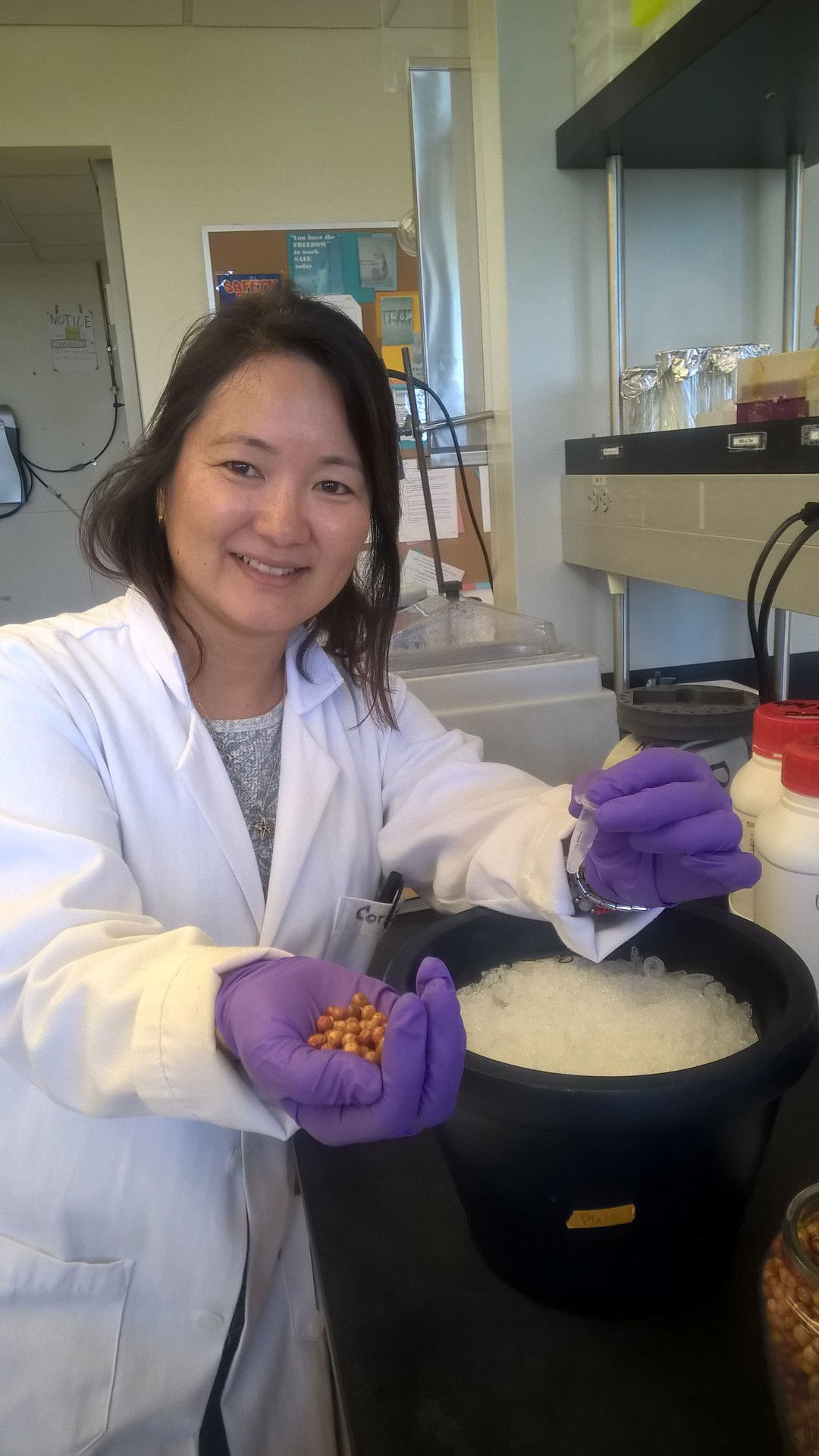A researcher from Mexico has been selected for a prestigious fellowship that will allow her to explore pepper research at New Mexico State University.
NMSU will host Angela Corina Hayano Kanashiro from the University of Sonora in Mexico as a Borlaug Fellow. She will conduct research with Paul Bosland, Regents Professor in the College of Agricultural, Consumer and Environmental Sciences Department of Plant and Environmental Sciences. Hayano and Bosland will use the latest DNA technology, genotyping by sequencing, to study wild Sonoran chiltepins. Chiltepins are considered to be the progenitor of domesticated peppers such as bell peppers and New Mexican types.
Hayano’s objectives at NMSU are to learn new techniques to measure DNA diversity among chiltepin populations, and to review state-of-the-art bioinformatics. Hayano is acquiring knowledge on new technologies and concepts, but she is also working on collecting and preserving the chiltepin germplasm in Sonora, Mexico, with the Chile Pepper Institute. Hayano said another goal of the project is to establish a long-term collaboration with NMSU’s Chile Pepper Institute and the University of Sonora. These efforts will be used to seek additional funding from other sources to support understanding of in-situ genetic conservation.
“Specifically, her study is looking at state-of-the-art DNA sequencing and the challenges it presents to address diversity studies, sustainability, conservation and the effects of global environmental change,” Bosland said.
The Borlaug Fellowship is a prestigious award named after Nobel Peace Prize winner Norman Borlaug. The purpose of this fellowship is to provide opportunities to study with a researcher at a world agricultural center.
“I consider the Borlaug Fellowship a huge opportunity to increase my skills as a researcher, and an excellent chance to establish ties of cooperation with other scientists and institutions whose common objective is to achieve an impact on reducing poverty and improve nutrition. I am excited and grateful for the opportunity to acquire new knowledge, tools and techniques that will improve my work at the University of Sonora,” Hayano said.
“Hosting a Borlaug Fellow is a great accomplishment for both the Chile Pepper Institute and NMSU,” said Bosland. “It sets a path for NMSU for future participation in this program.”
Hayano will spend 12 weeks at NMSU before returning to Mexico, with Bosland in turn traveling to Mexico sometime in the near future to continue the collaboration.
“The idea is that the Fellow will have developed a skill applicable to the place where she works and that this will strengthen the international collaborations of the university,” said Bosland.
“I am thrilled to see that Dr. Bosland is hosting a Borlaug Fellow from Mexico and providing her with an opportunity to share her experiences and explore new ideas in her scientific pursuits here at NMSU,” said Rod McSherry, interim associate provost for International and Border Programs. “Visiting scientists that we host help us think about the global relevance and connectivity of the science we conduct, underscoring how our laboratories serve as powerful international avenues of collaboration.”
Another important goal of Hayano’s visit to NMSU is networking, as she gets to interact with NMSU researchers and professors who share similar areas of interest. An example of this networking are the discussions Hayano and Ivette Guzman, assistant professor of Vegetable Health Bioactivity at NMSU, have begun on how pro-vitamin A in wild chiltepins differs from that in domesticated chile peppers.

